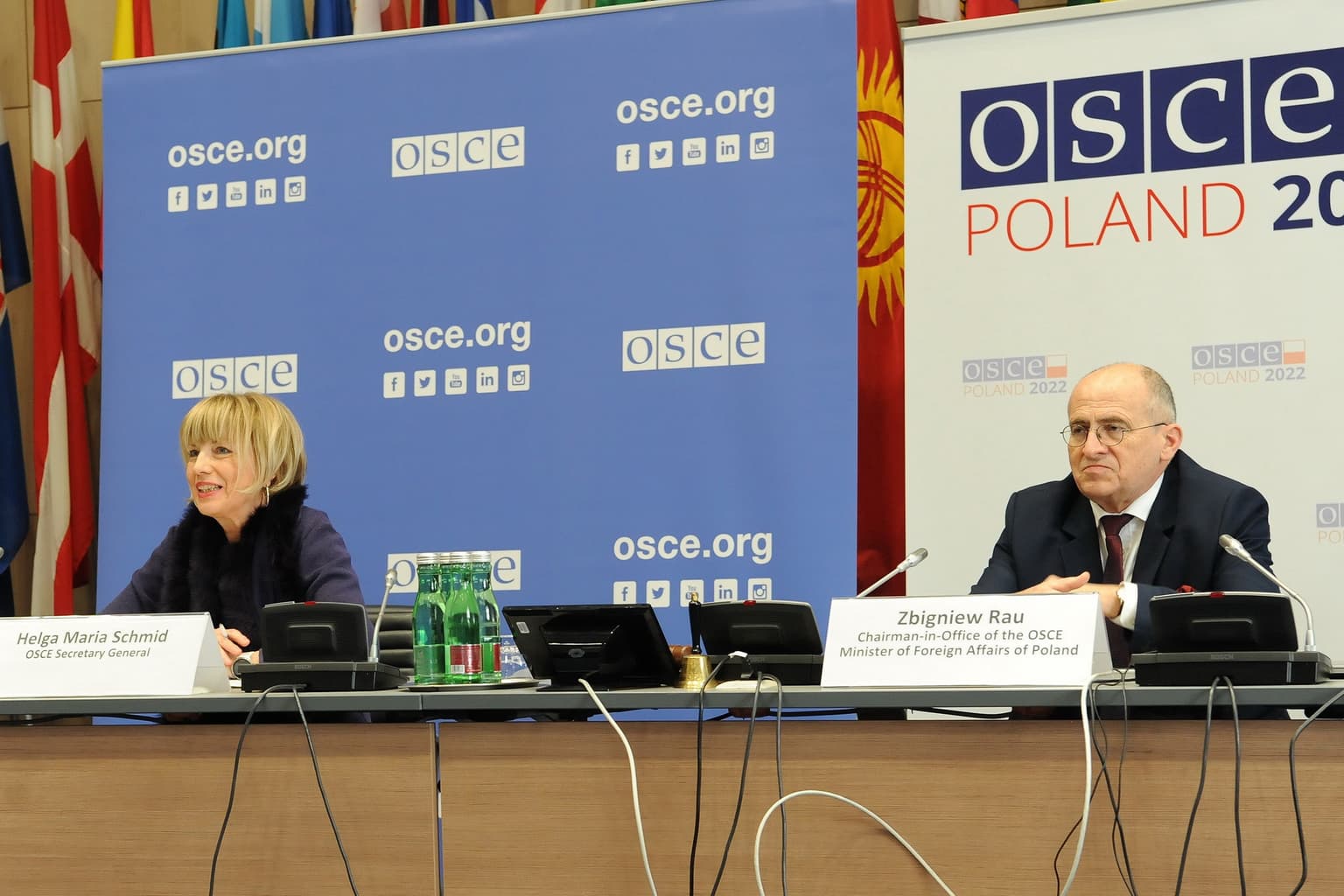Diplomacy week ends with no resolution, Russian threats

The week of diplomacy with Russia ended without a clear resolution and Europe teetering on the brink of war.
The West and Russia have reached an impasse, neither willing to budge on Russia’s core demand of excluding Ukraine from NATO and pulling NATO members’ forces back from Eastern Europe. Russia has over 100,000 troops near Ukraine’s borders, along with the technology they need for a large-scale offensive.
Russia met with the U.S. on Jan. 10 and with NATO on Jan. 12. Following the meeting of the Organization for Security and Cooperation in Europe on Jan. 13, both Russia and the West made ominous statements.
“We’re facing a crisis in European security,” said top U.S. diplomat Michael Carpenter. “The drumbeat is sounding loud and the rhetoric has gotten shrill.”
Sergei Ryabkov, the top diplomat at Russia’s delegation, told news agency Interfax that the talks hit a dead end, and he does not see any reason to sit down again in the coming days to discuss the same thing. During the talks, Russia focused on the draft treaties with the demands it sent to the U.S. and NATO in December.
“We propose to go step by step through the text, to work on it in order to bring it to a stage where it would be ready to sign,” Ryabkov said. “This is impossible today because the U.S. and its allies categorically say no to key elements of these texts.”
The key elements include Ukraine's membership, which Russia called a "red line," and for NATO allies not to deploy military assets in countries that joined NATO after 1997 – in other words, all former Warsaw Pact states. The demand has been roundly rejected as a non-starter.
“We must never stand for the flouting or erosion of our bedrock principles,” Carpenter said. “That means no tolerance for overt or tacit spheres of influence, no restrictions on the sovereign right of nations to choose their own alliances, no privileging one state’s security requirements over those of another.”
The Russian mission to the OSCE warned “if we don’t hear a constructive response to our proposals within a reasonable timeframe and aggressive behavior towards [Russia] continues, we’ll have to take necessary measures to ensure strategic balance and eliminate unacceptable threats to our national security.”
The U.S. and its allies promised severe economic sanctions if Russia invades.
OSCE chairman and Polish Foreign Minister Zbigniew Rau said that the risk of war in the OSCE area “is now greater than ever before in the last 30 years.”
To keep diplomacy going, Carpenter said that OSCE members agreed to launch a new process to debate issues of European security.
“There was never any expectation that there would be an agreement today,” Carpenter said. "Today is the announcement of the beginning of a process, that process will get underway shortly. And we hope to have an open and sincere dialogue." But he said it remains to be seen if Russia wants to engage.
After the NATO meeting, Russian diplomat Alexander Grushko said Moscow would be willing to talk about arms control but would not back down from its main demands.
Tim Ash, an emerging markets sovereign strategist, wrote that he didn't see room for compromise.
“The status quo allows Ukraine to continue on its Western path, moving even further out of Russia’s orbit,” Ash wrote. “And that is absolutely not what (Russian President Vladimir) Putin wants.”
Hanna Shelest, a strategic scholar, published an opinion on Jan. 12, saying it was important for the U.S. to reduce tension on the borders with Ukraine and dispel the fear of an attack. She believes that statements by both sides following the talks on Jan. 10 may give cause for cautious optimism as Russia said it's willing to discuss certain issues.
"Statements from both sides indicate that at least an instant attack has been delayed," Shelest said. "Although the Russian Federation is really unpredictable. How all subsequent negotiations go will depend on what maneuvers we will see on our borders."
However, Glen Grant, a defense expert and former lieutenant colonel of the U.K. army, said that Russia would attempt to surprise Ukraine. “We must not expect Putin to do what we expect,” he said.
Ash, who said that Putin can't afford to allow the status quo of Ukraine's westward drift to continue, may be trying to bully Kyiv into acquiescing to its demands.
Ash believes that Russia’s current energy leverage over Europe, expectations that the West’s response will be weak and Europe moving away from its dependence on Russian gas, mean that this is the most opportune timing for Putin to change Ukraine's geopolitics through conflict. "It's kind of now or never," he wrote.










